Apartment office ideas – 10 ways to make room for a desk when space is tight
If an apartment office has become a necessity for a new WFH set-up, choose an idea that's easy to work at and doesn't get in the way when you're off the clock

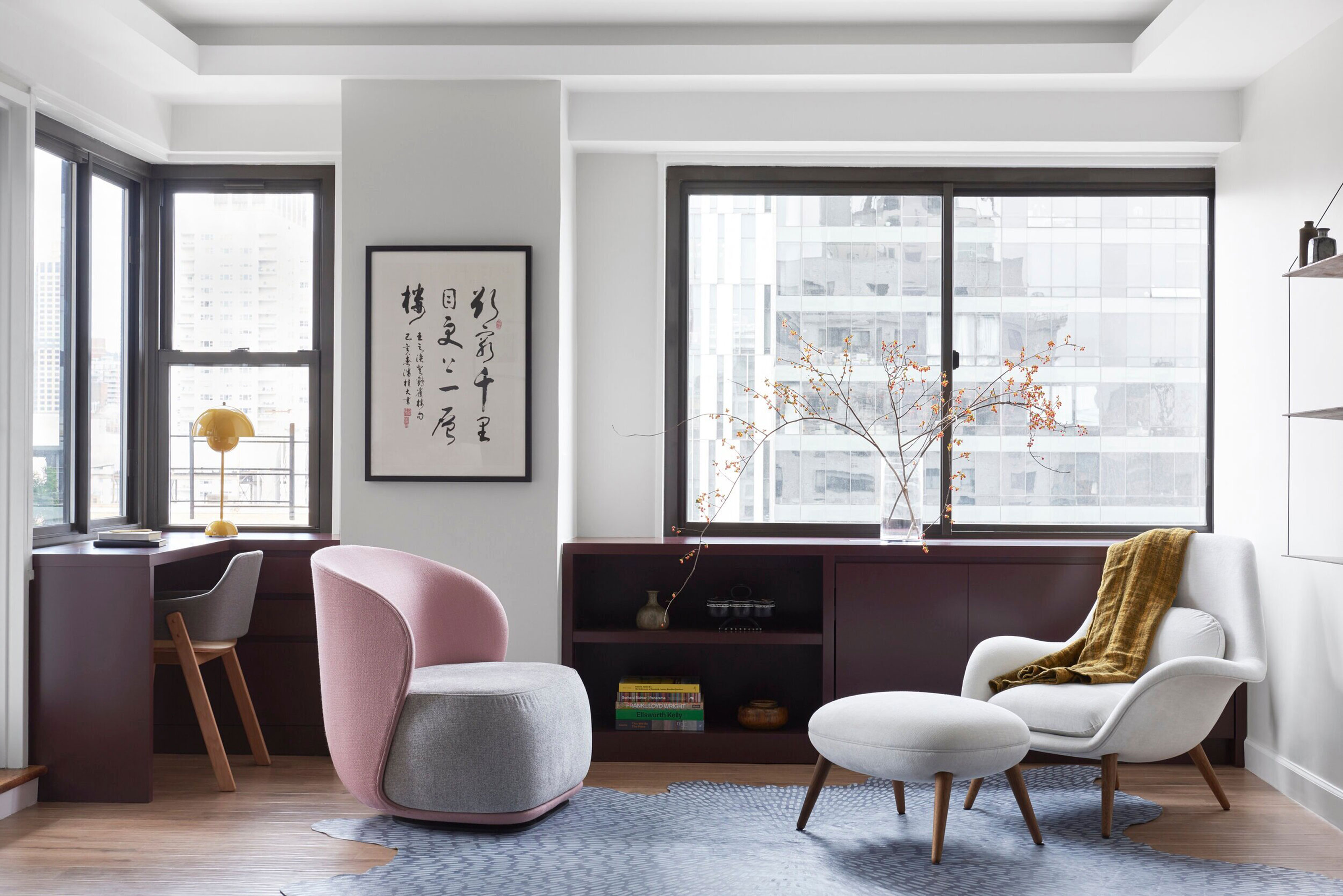
The Livingetc newsletters are your inside source for what’s shaping interiors now - and what’s next. Discover trend forecasts, smart style ideas, and curated shopping inspiration that brings design to life. Subscribe today and stay ahead of the curve.
You are now subscribed
Your newsletter sign-up was successful
When you're looking into apartment office ideas, there are bound to be mixed feelings. Working from home might mean no commute, better coffee, and a more relaxed dress code (pajamas from the waist down may well be the unofficial WFH uniform, after all). But it also means giving over some of your precious apartment space to create somewhere to actually do the work.
When you're decorating an apartment – especially a small one – its square footage doesn't tend to be on your side for this sort of thing. That means you might have to get creative to fit one into your floorplan.
But it's not just about space. The work/home divide is also something you need to factor in, and not just from a practical perspective that you've got somewhere quiet enough to take Zoom calls. Creating a mental separation between your home and work life is important to make sure you switch off when you clock off. With the right apartment office idea for your space, a desk can stay out of sight and out of mind come the end of the working day.
Take a look at these spaces that serve up both pragmatic ways to include a desk in a small apartment and innovative design solutions that'll up your WFH game.
Is it worth setting up an apartment office?
Before you get carried away with creative home office ideas, it's worth asking yourself whether you think this change of working habits is something that will continue long-term. 'If you believe you will eventually be going back to the office four to five days a week in the future, we will caution people against apportioning too much space,' warns Tom Klaber, founder of design studio k-da, 'especially to something that will be unused 75% of the week.'
Of course, the future for many people is unclear, but some of these desk ideas for apartments lend themselves better to a temporary situation than others. These ideas range in scale to suit a variety of different WFH lifestyles, from the occasional to the seasoned from-home worker.
1. Create a desk behind doors
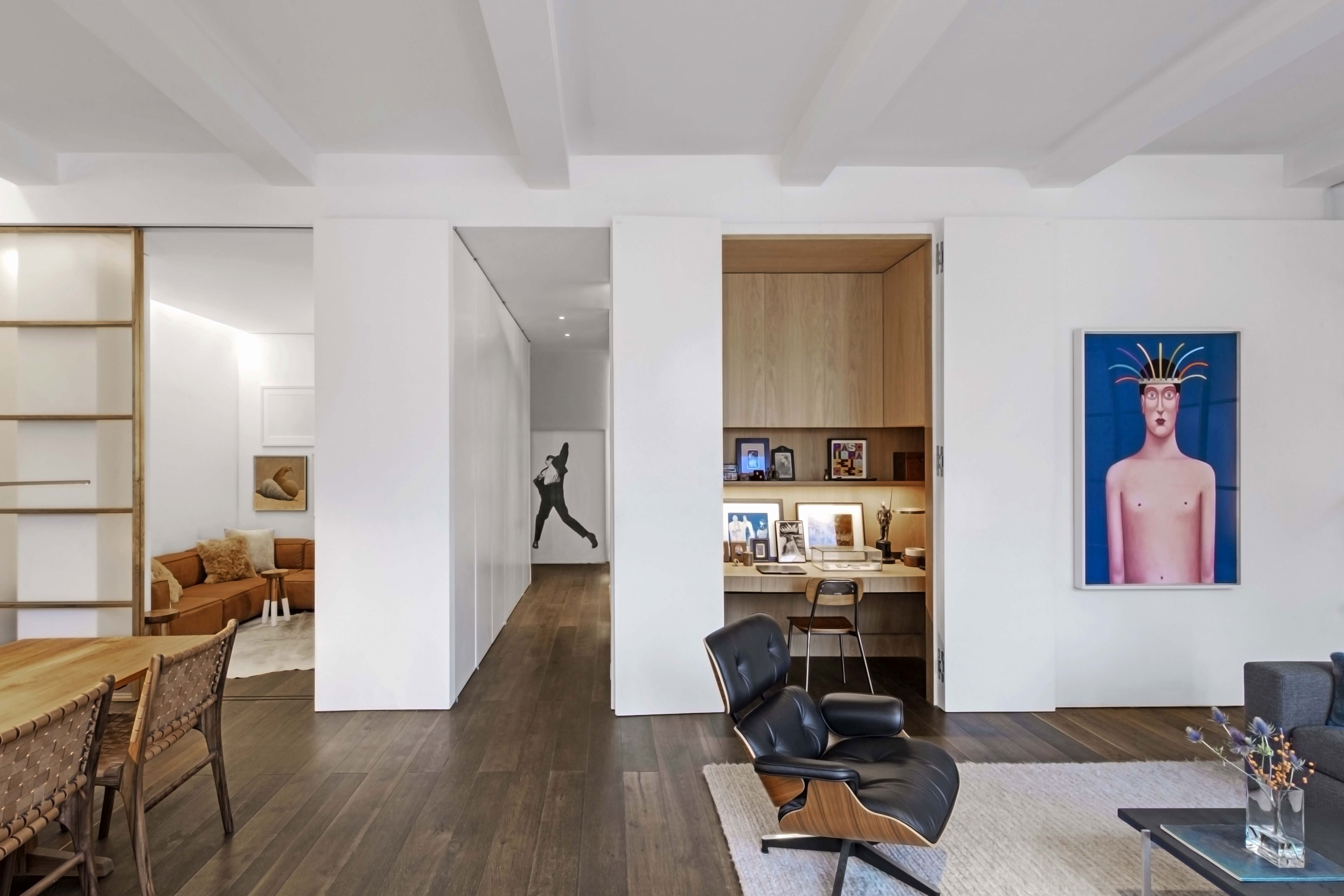
Turning a small niche, such as a closet, into a home office is a great idea if you don't need sprawling desk space for your work. These closet office ideas are self-contained and you can close the doors on them so that your desk doesn't intrude on your personal space, especially helpful when entertaining in your apartment's main living area.
The Livingetc newsletters are your inside source for what’s shaping interiors now - and what’s next. Discover trend forecasts, smart style ideas, and curated shopping inspiration that brings design to life. Subscribe today and stay ahead of the curve.
In this apartment design by Messana O'Rorke, there are some useful takeaways from this clever desk setup. First up, consider your choice of doors and how they'll impact how you use the office. Choose something that won't intrude on your space when using the desk where possible. Pocket doors are a great solution and can be tucked away when the office is in use, but even these simple vertical split doors work well as a home office idea for small spaces. Minimalist in design, when open, they match the walls, creating the idea that this desk isn't just a temporary feature.
Lighting is another thing to consider, as working in this sort of converted closet will mean low levels of natural light. A diffused LED strip is a good choice for a soft, even light that feels comfortable to use in the daytime.
2. Separate a desk with a room divider
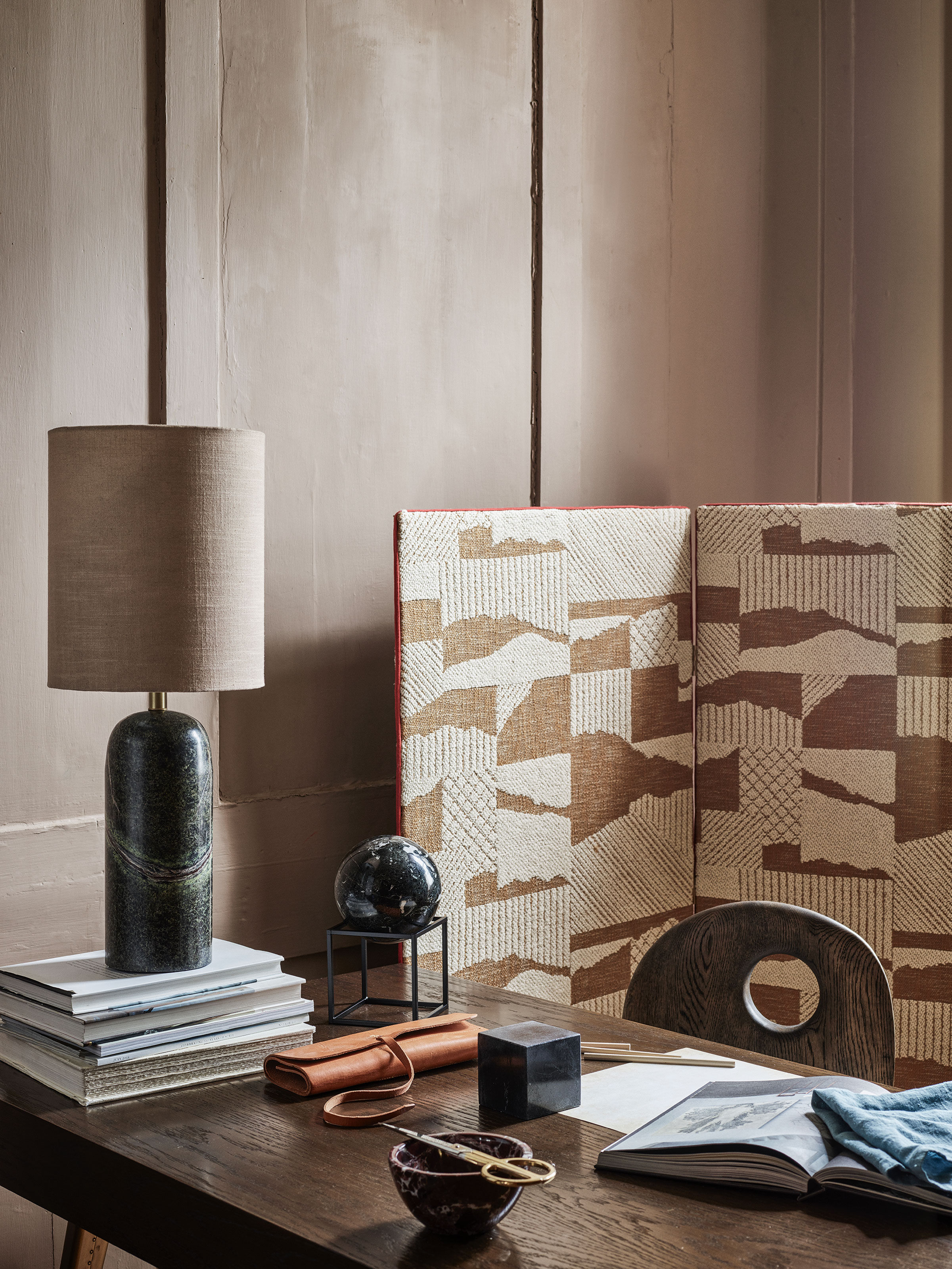
Is sound separation required? It's one of the first questions you should ask about your WFH set-up, but also one you need to be realistic about. 'Most people answer yes, but this requires much more space and infrastructure,' explains Adam Klaber, 'so we like to push people to think about if this is a need or a want. If you can live without it, many more options will be available.'
Creating privacy and blocking out the rest of your apartment for a more professional Zoom background is something you can achieve in your positioning of the layout of the space, but also simply by using a freestanding screen.
These simple room divider ideas are perfect for an apartment, as they can be adjusted to adapt the space to your needs. From screening off the room when you're on video calls to concealing your desk at the end of the day. They also work as part of your living space's furniture in a more casual aspect, but can always be folded away when not needed to clear some floor space.
3. Position a desk by a window
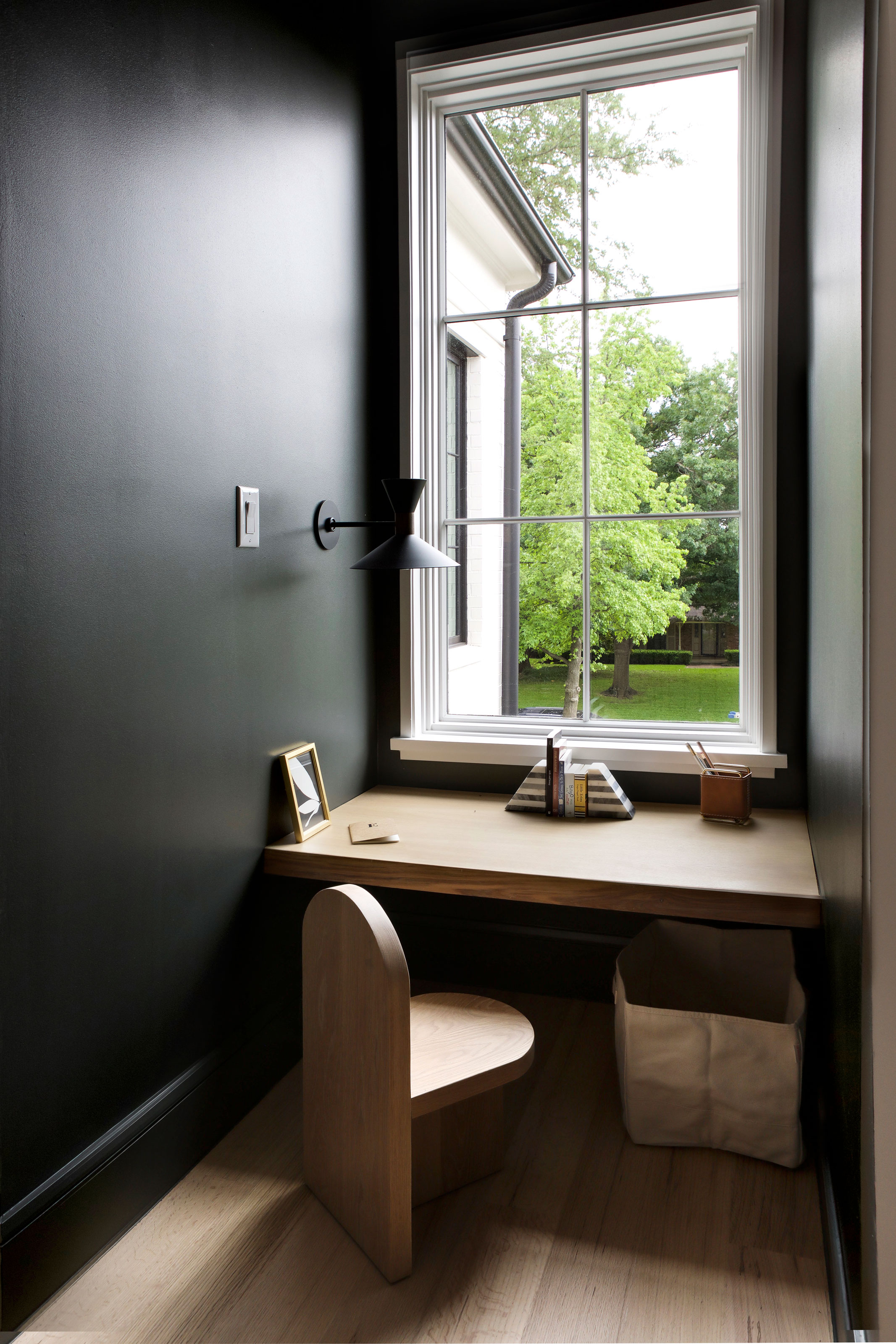
'Our favorite spot for a desk is usually by a window,' says Nathan Cuttle, director of Studio Nato. 'The more natural light you get, the better it is for your eyes and your mind. And there are so many benefits to being able to take a short break and just stare out.'
Of course, windows are a huge commodity in an apartment, so you have to decide whether, for you, it's worth the trade-off against another area of your home that could benefit from this natural light. If you do work from home, a bright, well-lit desk for a home office is probably worth it considering how you'll spend the majority of daylight hours in your apartment.
However, working by a window is not for everyone. 'We have had video editor clients who actually wanted a dark office,' says k-da's Tom Klaber. 'Also, the exact relationship is important – having your back to windows is not ideal for video call backgrounds and screen glare.' If you're looking for the most flattering natural light, it will be from either side, rather than straight on.
4. Or consider creating a desk across a window
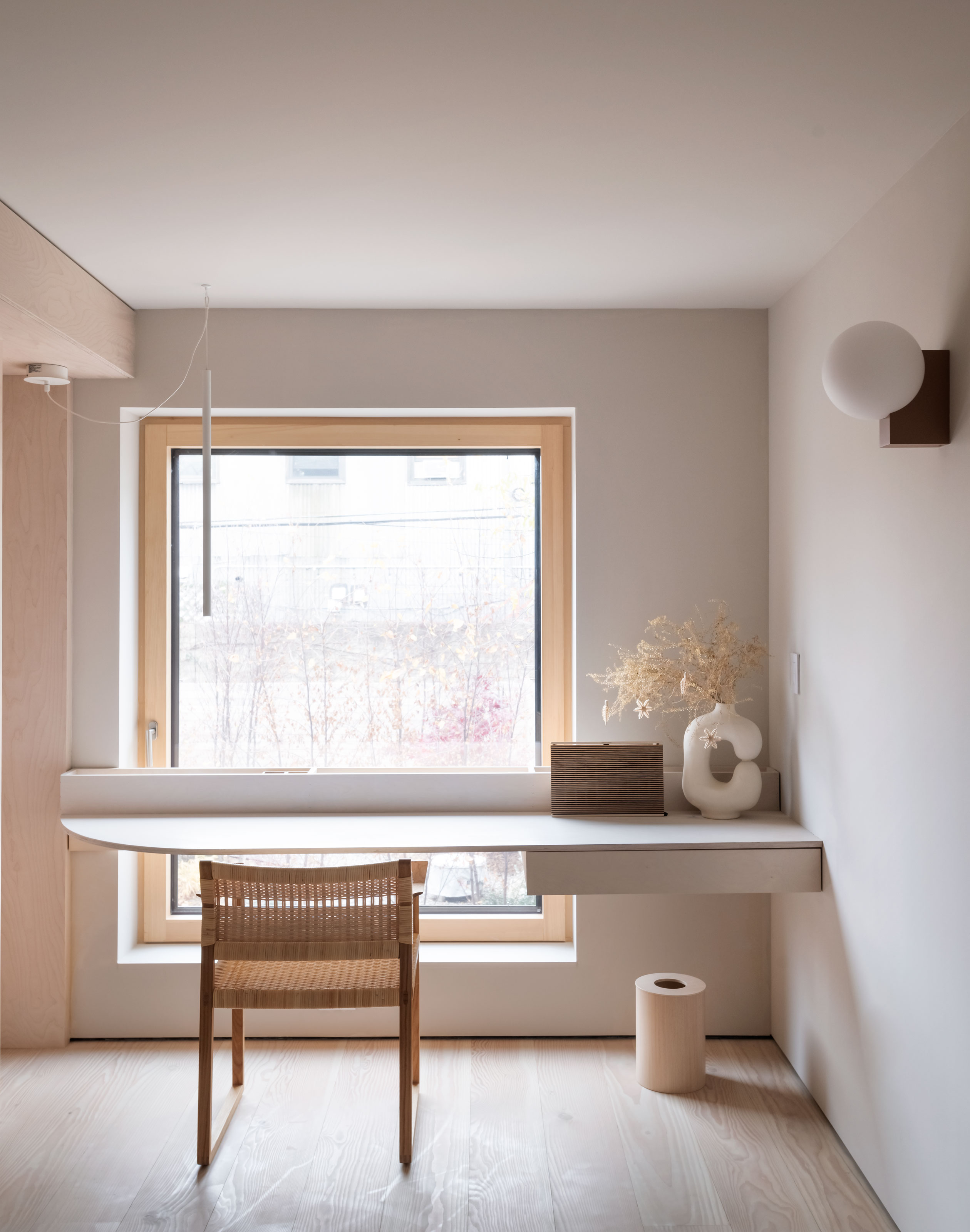
It might seem a strange idea to consider, but building a desk across a large window has become something of a viral phenomenon, in no small part down to designer Athena Calderone's beautiful desk set-up in her Brooklyn townhouse, which is something of a Pinterest classic.
With a slimline desk, you can retain the sense of the large window, while giving yourself extra wall space to play with. It can also help to create a more inspiring layout for your home office.
'Sometimes, using furnishings just along the sides of the room would only reinforce a tunnel-like effect,' says Lea Korzeczek, co-founder of Studio Oink and designer of this small home office space. 'However, this is not the only reason placing a desk across a window. We wanted to create a connection between inside and outside.'
'When you need a short break, your gaze can rest on the greenness outside or the delicate pink blossoms of the cherry trees in the garden.' This natural outlook plays into biophilic design principles that can help you focus when you are working, as well as increase your general wellbeing.
5. Create comfort with a floating desk
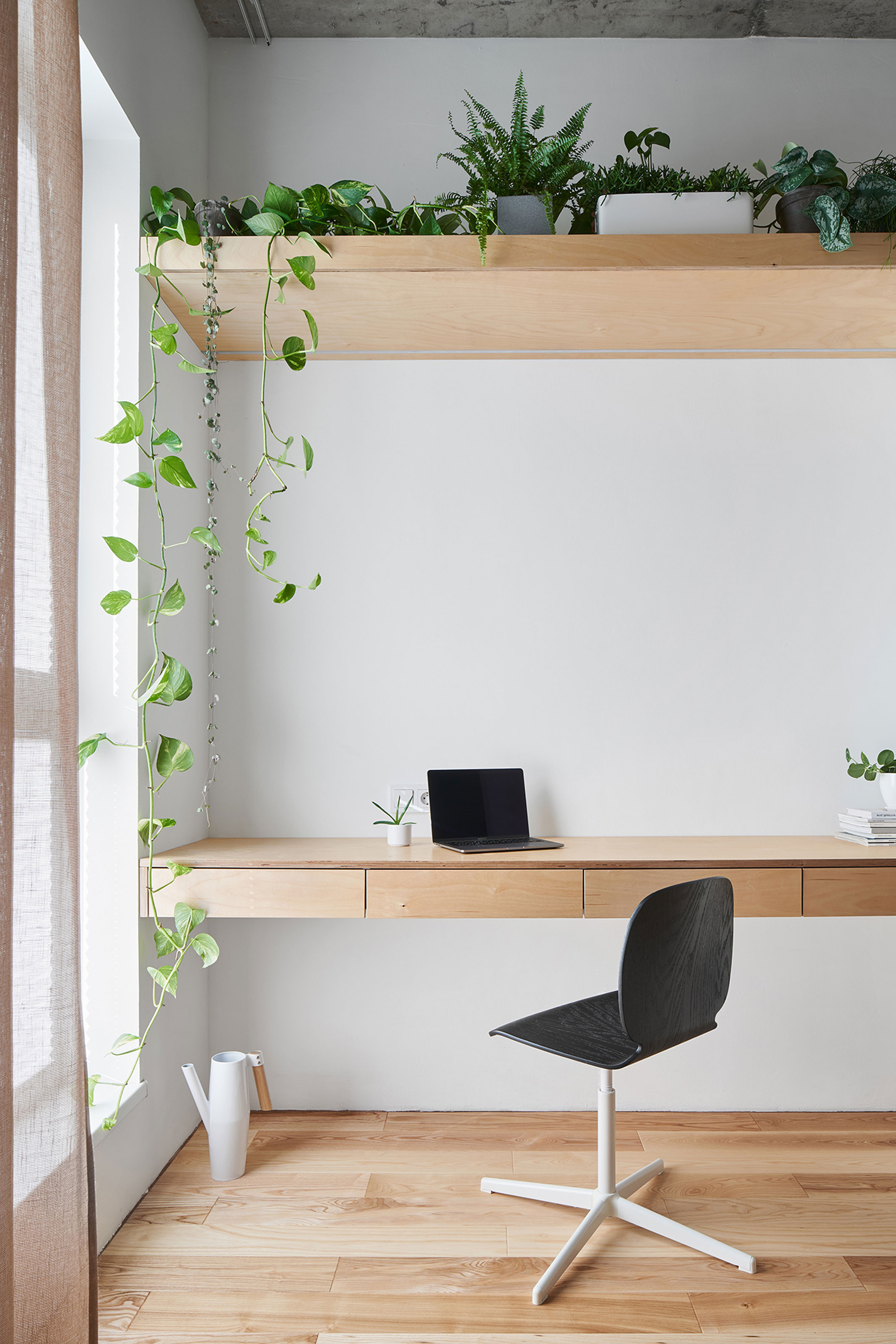
Modern offices are ergonomically designed to make using them as comfortable as possible, something you can't always say for an ad-hoc home office. If you've ever had a tiny desk that doesn't have much legroom to offer to work from home, you'll know what an uncomfortable working day is.
Opting for a floating desk is a good idea for many reasons. While it doesn't have the flexibility of a freestanding desk, it will maximize the amount of desk surface you have. It also removes the constraints of table legs meaning more room for your own legs, or for incorporating storage ideas under the desk.
This design by Line Design Studio uses a floating storage desk for a perfect balance of practicality versus form. The length of the desk, coupled with the lack of legs, means it's easy to use any portion of this working space at any time. This can be useful when not just working at a screen, but also for laying out papers and documents, or for a separate reading space.
6. Build a desk into your millwork
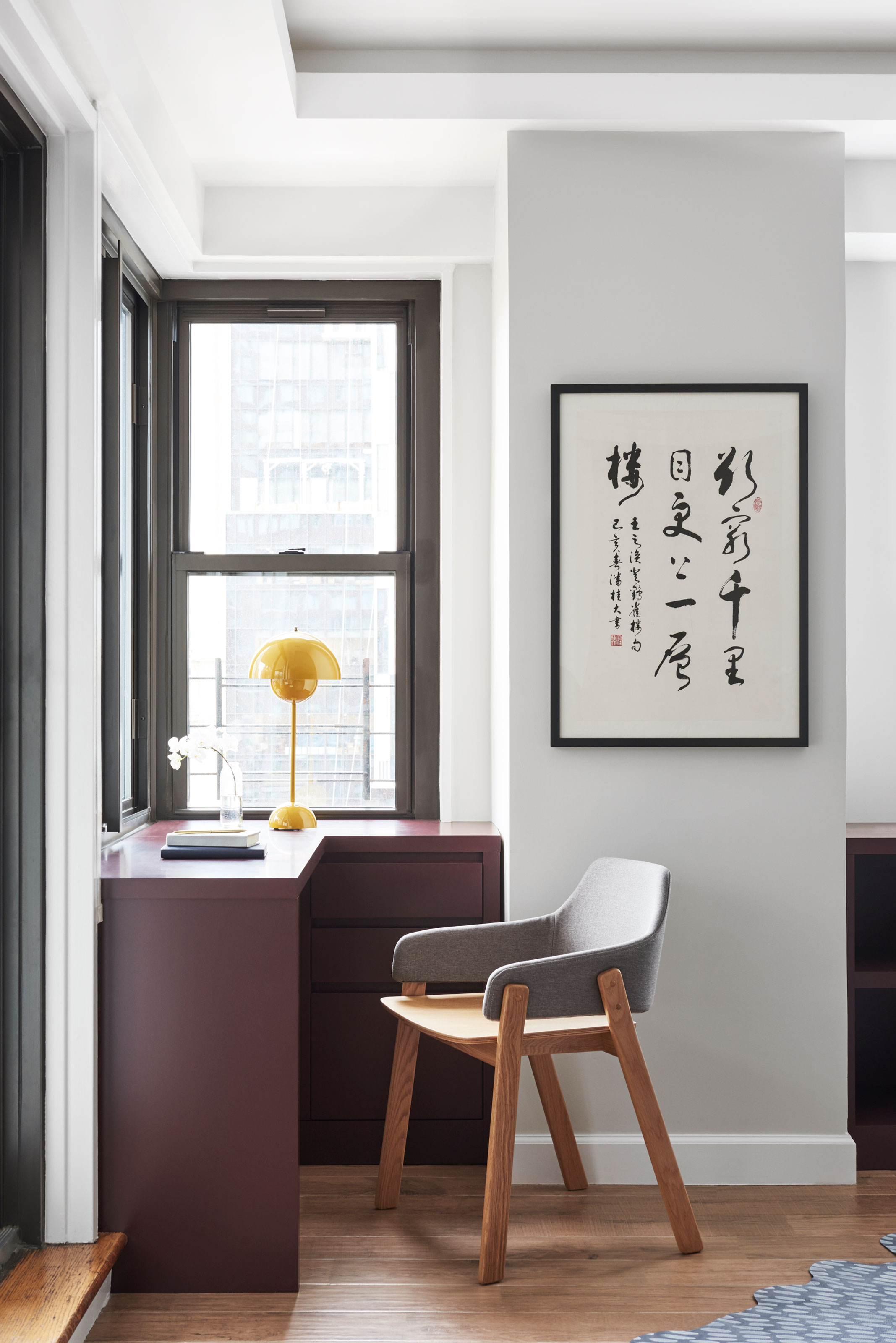
If you're undertaking a larger apartment re-fit, it can be beneficial to think about your apartment office during the design stage, rather than trying to find room after the fact.
Designing a desk into custom millwork can be particularly effective for a modern home office. 'Built-ins typically come at an added cost,' says Studio Nato's Nathan Cuttle, 'but due to their custom nature, they ensure that all available storage space is maximized.'
'For this project, we built a custom corner desk with a view on the Manhattan skyline,' he explains. The burgundy millwork mirrors storage created across the living area of this open-plan apartment, helping the desk to feel like a cohesive part of the overall space.
7. Opt for subtlety for a desk in a living area
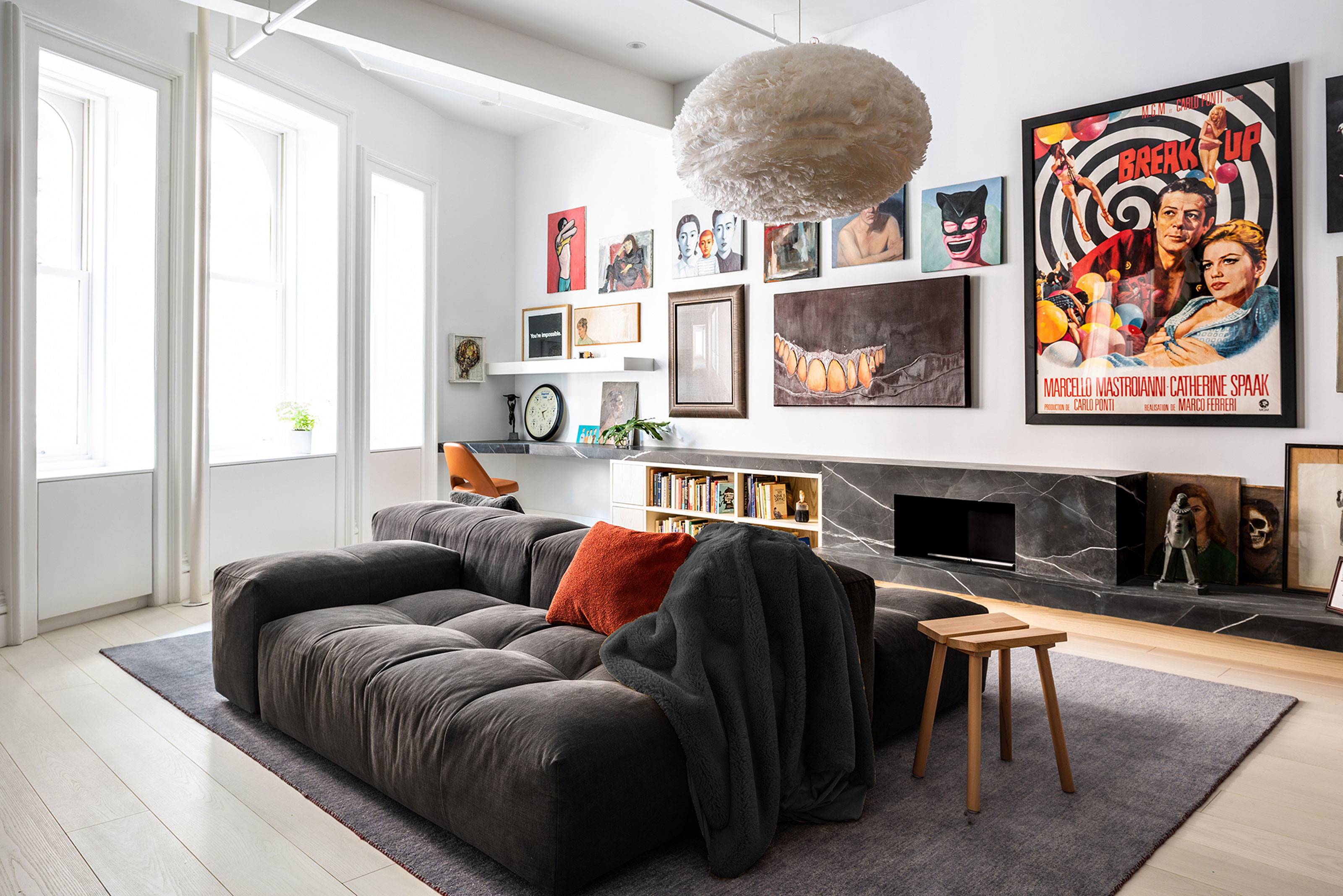
Positioning a desk in a living area might make the most sense, but when you're not at work, its presence can be a constant reminder of a looming deadline that distracts you when you're meant to be unwinding. To design out this problem, think of solutions to make your home office less intrusive and a little more discrete.
There are plenty of ways you can do this, even in a small apartment living room. A ladder desk, for instance, can look like a simple bookcase when your laptop is packed away for the day.
We also love this clever idea for a loft apartment designed by New York design studio Worrell Yeung. A beautiful black marble has been used to create a focal point fireplace for the zoned living space, something that's continued to make a floating desk in the corner of the room. Adapting the space into the gallery wall also helps to pull focus away from the desk, making it background noise to the symphony of this design.
8. Take advantage of an underutilized space
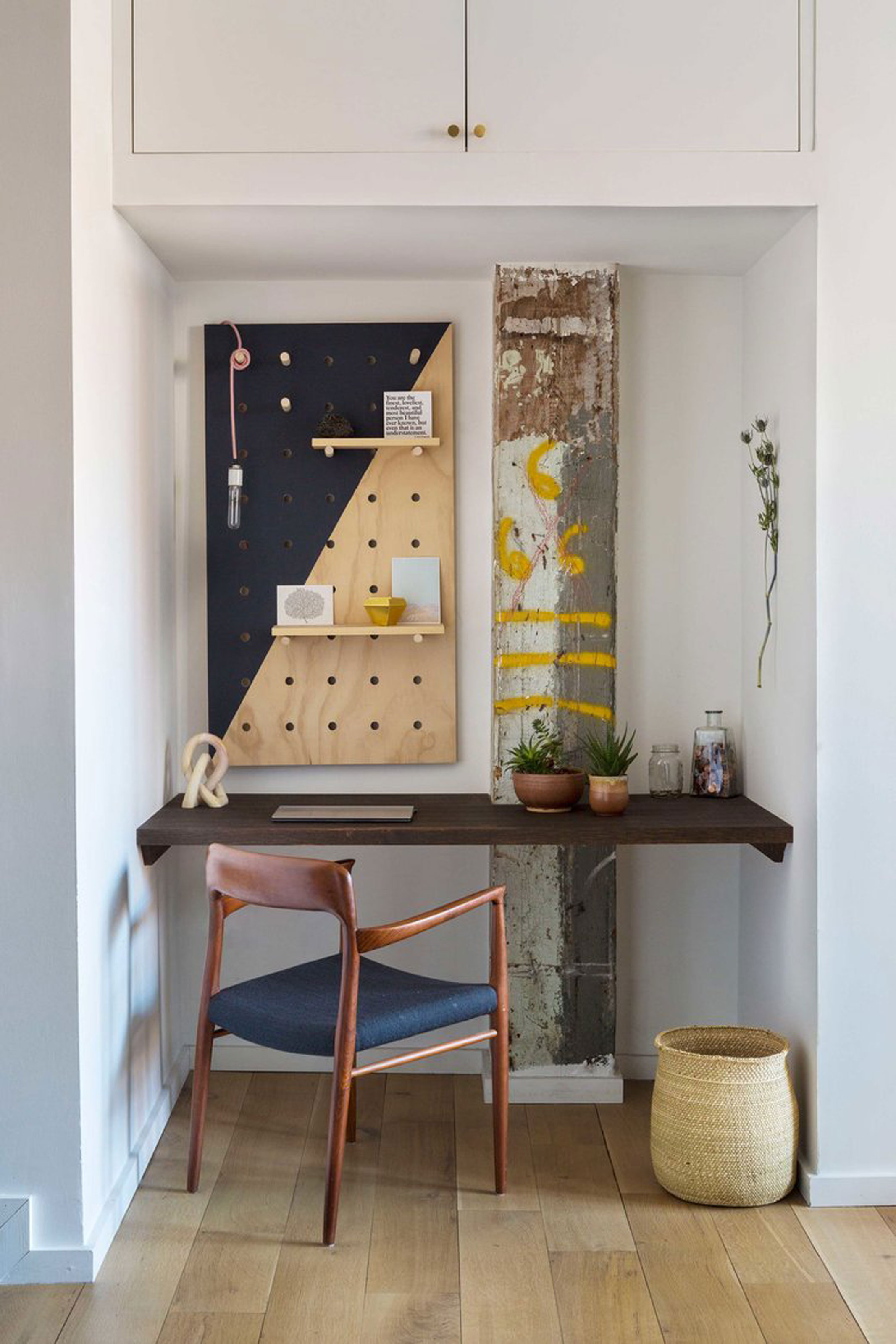
When searching for a dedicated workspace in a small apartment, the truth is that something is better than nothing. It's not unusual for a room to have an awkward corner, alcove, or niche in a space that doesn't contribute much to how you use an apartment, but that might be adaptable for a small desk.
In this loft apartment designed by Studio Nato, an exposed beam might have added character to the room, but it also made this niche difficult to use. A simple, custom desk, built around the steel, makes the most of the space, and teamed with an office chair and a stylish pegboard, it's become the perfect mini workspace for this apartment.
9. Make an area multi-task as a home office
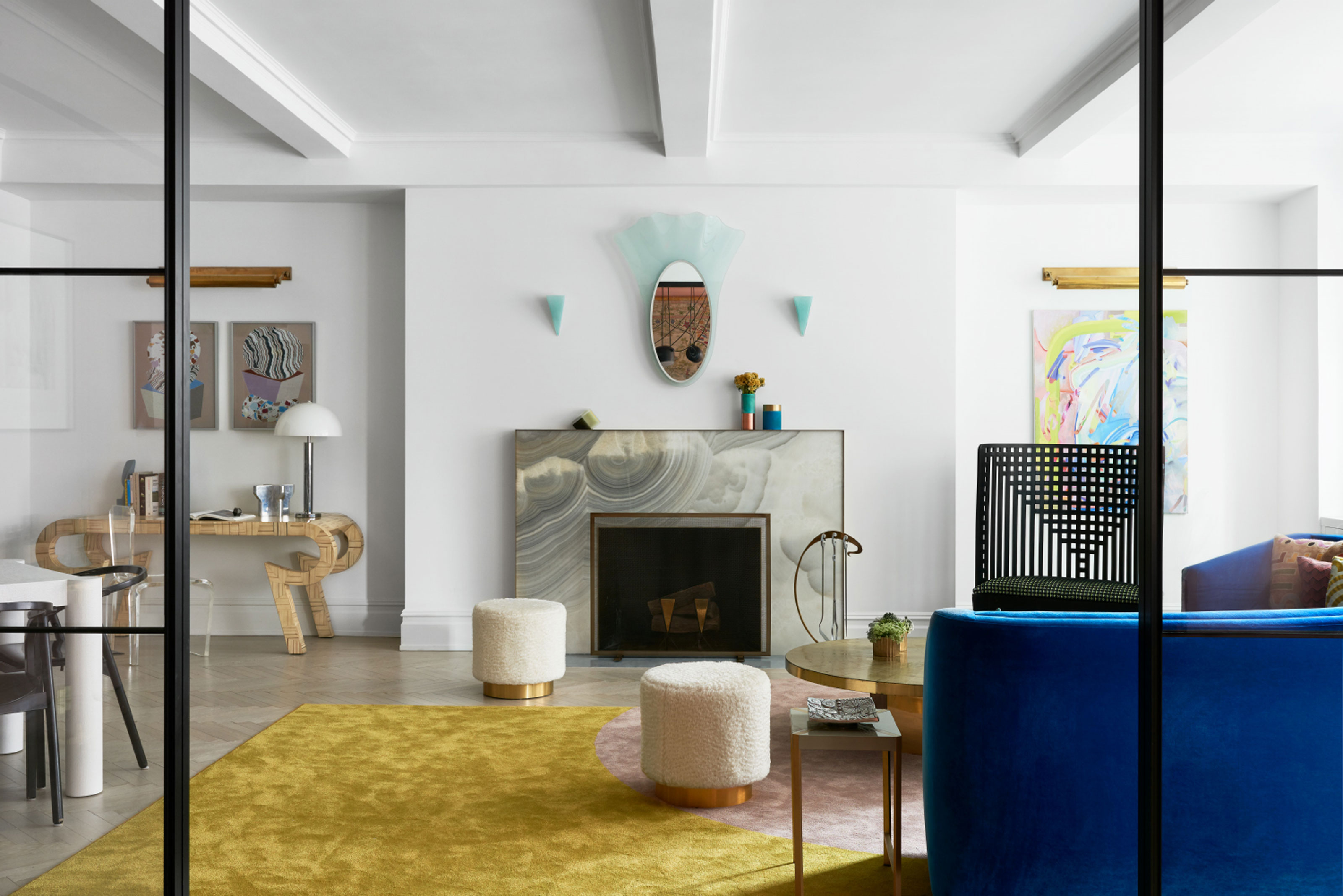
A workspace doesn't necessarily have to be an office, or even a desk. 'Be creative in thinking about transforming spaces from one function to another,' suggests Tom Klaber. 'For example, rather than creating an office, see if an existing can space go into "Office Mode."'
If you only have room for one, prioritizing a dining table over a home office is the better choice as it will function as both a desk and a social space, depending on the situation. Or why not consider a small bedroom office idea like a double-function vanity and desk?
For a more decorative approach, consider a desk that doesn't look like a desk. In this Brooklyn apartment created by MKCA, a console table in the corner of the room can double up as a desk when needed. Using a Phillipe Starck Ghost chair ensures that seating is available if you have to take an impromptu meeting, but has a low impact visually, keeping the furniture looking like a decorative console rather than a desk.
10. Take inspiration from this retractable desk
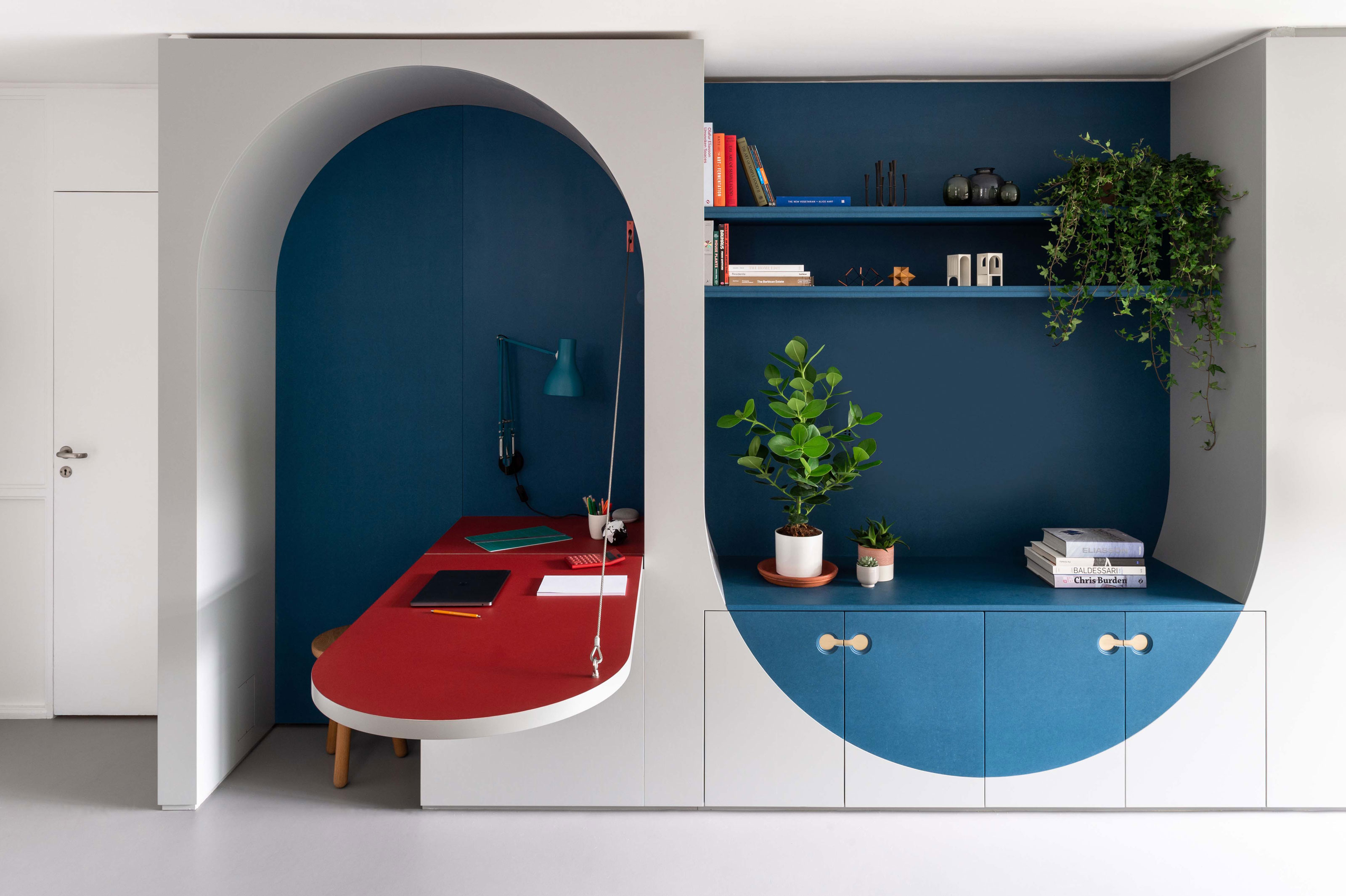
In the re-design of this London apartment, architect Ben Allen created an innovative design to incorporate a small home office. Bespoke, curved cabinetry was created along the main living area, including a retractable desk. 'The desk folds away when not in use and is supported with a cable and operated with a counterweight to ensure ease of use,' Ben explains.
Made from painted plywood, this brilliant small apartment idea not only enlarges the area of the desk, but also hides the home office from sight when not in use.
How do I set up a home office in a studio apartment
Finding room for a home office in a small studio apartment is undoubtedly going to be challenging, but not impossible. It will just require some creative thinking to get the most from your floorplan.
To strike the work-life balance in a small space, choosing adaptable, multi-functional studio apartment ideas is a good plan. Desks that can fold out and away will be particularly useful, and while this might not allow you to have a permanent office set-up, it's a worthwhile compromise.
If you have the ceiling height, you could also consider a loft bed. Elevating your bed onto a platform will create extra useable floor space underneath, which would be perfect to dedicate to a home office.
Remember also that furniture doesn't just need to be around the perimeter of the room. Consider studio apartment layout ideas where a desk might be in the center of the space – behind a sofa can work well with disrupting the flow of the room.

Hugh is Livingetc.com’s editor. With 8 years in the interiors industry under his belt, he has the nose for what people want to know about re-decorating their homes. He prides himself as an expert trend forecaster, visiting design fairs, showrooms and keeping an eye out for emerging designers to hone his eye. He joined Livingetc back in 2022 as a content editor, as a long-time reader of the print magazine, before becoming its online editor. Hugh has previously spent time as an editor for a kitchen and bathroom magazine, and has written for “hands-on” home brands such as Homebuilding & Renovating and Grand Designs magazine, so his knowledge of what it takes to create a home goes beyond the surface, too. Though not a trained interior designer, Hugh has cut his design teeth by managing several major interior design projects to date, each for private clients. He's also a keen DIYer — he's done everything from laying his own patio and building an integrated cooker hood from scratch, to undertaking plenty of creative IKEA hacks to help achieve the luxurious look he loves in design, when his budget doesn't always stretch that far.